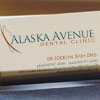While sleep apnea and snoring may seem similar, they are actually two completely different issues. Below, our Fort St. John dentists explain the differences, and why they're important.
Why am I so tired in the morning?
Many people who have sleep apnea are unaware that they have the condition and think they’re just snoring. This is an easy mistake to make since snoring is one of the most recognizable symptoms of sleep apnea. In addition, both snoring and sleep apnea can be related to other health problems, and both can disrupt sleep.
However, there are some important differences between the two.
What is snoring?
Snoring is essentially vibrations in the respiratory structures that happen when air movement is obstructed during sleep. Snoring can be caused by an elongated soft palate, the uvula, a large tongue, or nasal obstructions, among other things.
While snoring is indeed a common symptom of sleep apnea, not everyone who has sleep apnea snores. And of course, many people who snore don't have sleep apnea.
What is sleep apnea?
Sleep apnea is characterized by abnormal breathing pauses during sleep. These breathing pauses (called apneas) can occur because of a physical blockage to airflow, a lack of respiratory effort, or a combination of the two. Obstructive sleep apnea (caused by a blockage) is the most common form.
How can I tell if I have sleep apnea?
People who suffer from sleep apnea are often first made aware of it by their partners, who notice the pauses in breathing.
If you feel tired throughout the day, and notice that your work performance, general vigilance, and ability to stay motivated have gone downhill, it could be a sign that you are experiencing sleep disruptions due to sleep apnea.
The only sure-fire way to determine if you have sleep apnea is to be assessed by a professional. A qualified medical professional can positively diagnose you, and get you the help you need.
Do I need treatment for sleep apnea?
Sleep apnea is more than just a nuisance. It carries serious health concerns with it. Those who suffer from this condition fall out of deep sleep when their breathing pauses, resulting in poor quality sleep. It can also trigger the release of stress hormones, change how your body uses energy, and make you feel tired and sleepy during the day. In addition, there are several potential negative health effects of inadequate sleep, such as weight gain, memory loss, skin aging, and more.
Sleep apnea may also lead to a greater risk of high blood pressure, heart attack, stroke, congestive heart failure, atrial fibrillation, diabetes, certain cancers, and even sudden death.
Once you've been diagnosed by a medical professional, your dentist can recommend treatment options and work with you to help you achieve a better night’s sleep.

